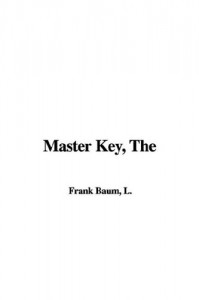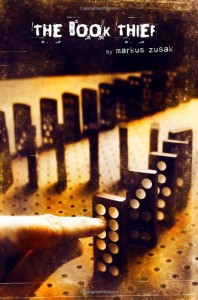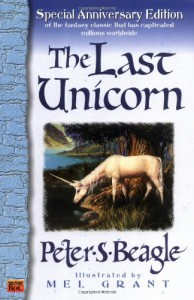The Master Key
 This book was a series of surprises for me.
This book was a series of surprises for me.Some of them were positive, and some of them were not.
I couldn't help taking a sigh of relief when nowhere in the book scientific progress and new technologies were portrayed in a negative light. Maybe it's because of the period in which this was written, but it is so refreshing. I'm just tired of being told my field of interest is evil and will destroy the world by people who understand literally nothing of it.
On the other hand, as a girl who has wanted to get into STEM since middle school, the continuous iteration that this was "a tale for boys" because no girl ever would be interested in electricity obviously was unbearable at best. Especially considering the author's other works: I have read [b:The Wonderful Wizard of Oz|236093|The Wonderful Wizard of Oz (Oz, #1)|L. Frank Baum|https://d202m5krfqbpi5.cloudfront.net/books/1398003737s/236093.jpg|1993810] and recently started (and dropped) [b:The Sea Fairies|358488|The Sea Fairies|L. Frank Baum|https://d202m5krfqbpi5.cloudfront.net/books/1348939204s/358488.jpg|3175715] and they both feature very bright little girls. Why wouldn't bright little girls like Dorothy and Trot be interested in science? Especially when the main character of this book is portrayed as anything but bright! He's daft and only strikes the master key by chance.
The Atlantis Complex
 (I have mixed feelings about this book so the review will take a while - assuming I don't just skip reviewing it)
(I have mixed feelings about this book so the review will take a while - assuming I don't just skip reviewing it)Some quick thoughts: it has a more solid plot than its predecessor, although it is arguably more of a filler. The depiction of Artemis's mental illness is disrespectful at times (even though it is a made-up illness it shouldn't be made the bottom of jokes. It reveals a poor attitude towards the mentally ill).
The ending is a real downer. I quite liked the villain, in the sense that he was truly properly evil.
Magic, Inc.
 (I am only reviewing the titular novella)
(I am only reviewing the titular novella)This novella is an excellent example of how a fantasy setting can be used to tell a variety of stories, and not just the usual sword-and-sorcery adventure which is most commonly associated to the genre.
While the story is interesting and very well written (not even the Italian translation, which as I've stated again and again is usually clunky as hell, managed to spoil it), it has some flaws, especially in character building: while you glimpse interesting facets in all the characters, the limited length doesn't really allow to explore such a large cast.
It also has a sexist streak, although tamer than in other works from the period. There is a rather long rant on how women are inherently bad politicians because of their gender and the mp who helps the main characters is successful in politics only because she is so very different from other women (bleaurgh).
Although the length is about right for this story, I found myself wishing I could read more about this universe, as the little worldbuilding we glimpse is maybe the most interesting part of the story. I think a story from the POV of a magic user would be ideal, so we could see the inner workings of the magic system.
Blue Noon
 Scott Westerfeld is an author who always has incredibly cool premises. Sometimes, his books don't really deliver on them (e.g. [b:Specials|24765|Specials (Uglies, #3)|Scott Westerfeld|https://d202m5krfqbpi5.cloudfront.net/books/1390340887s/24765.jpg|3278286]. I mean it's not a bad book, but it was a bit too heavy on the David for me); sometimes they do. Blue Noon definitely does.
Scott Westerfeld is an author who always has incredibly cool premises. Sometimes, his books don't really deliver on them (e.g. [b:Specials|24765|Specials (Uglies, #3)|Scott Westerfeld|https://d202m5krfqbpi5.cloudfront.net/books/1390340887s/24765.jpg|3278286]. I mean it's not a bad book, but it was a bit too heavy on the David for me); sometimes they do. Blue Noon definitely does.I put off reading this book for the longest time because I didn't especially like the second book (I honestly can't tell why because I picked it up again for a quick read to freshen my memory and I found it very good) and most of all because it was never translated on its own, but only published in a collection of all three books, which sounds like a great deal unless you've already bought the hardcovers of the two previous volumes. Since in the end I read it in English anyway I guess I could have gotten off my butt and bought it online earlier. Since you can't change the past, I'd better move onto my opinions on the book.
The first and foremost thing that made me so happy I was basically flailing throughout the book was that my baby Dess was featured so heavily. Her superpower is one of the most interesting and fantastic I've ever read of in any fiction. It also helps that Westerfeld doesn't screw up the math too badly (God bless you Scott Westerfeld, the man who can write wonderful stories and do at least basic math).
Another thing I found refreshing was how Jessica's fear of being a disappointment was handled: too often female main characters in YA either revel in self-pity or are vilified by the narration for daring feel insecure. Instead she was shown to be insecure, subtly in everyday situations and heavily when under the influence of darklings, but it was never an annoying trait she had to get rid off: just an irrational feeling she couldn't help having.
I'd also like to thank God and also Jesus that Jonathan was finally awarded a personality more detailed than "rebellious love interest". To think it would happen in a book where all the other midnighters had so much shit going down! It was definitely the book where all of them did the most growing and changing, mostly because such extraordinary events forced them too. I'm glad none of them became angsty and grim-dark.
I am not entirely sold on how the lightning blot was supposed to seal off the rip and if it was foreshadowed in any way someone please point it out to me. But all in all it was a fantastic book.
I liked the ending, it gives me hope the author will choose to visit the amazing world of midnighters again sometime in the future.
The Land That Time Forgot
 So it doesn't happen often, but I picked this book up for a definite reason.
So it doesn't happen often, but I picked this book up for a definite reason.My sister had reminded me of the Dinotopia tv series and then I found this wandering around the project Gutenberg website shortly afterwards, and it sounded just perfect.
And it was. It was a very nice adventure tale, with a plucky protagonist (and love interest, to a certain extent!), elements of mystery and I must admit that I found the tension between the Englishmen and the Germans very entertaining and a bit hilarious, although I don't have any logical explanation as to why. Until the hominids made their appearance. Then the story just seemed to lose its thread and whimper off, probably also because the main character ended up alone and none of the characters were developed well enough to carry a plot alone without getting boring. On top of that there was the shit-ass racist language and the "the more the hominid group is civilized the wither they are" thing which was painful to read even as a white person. I guess one couldn't expect much better from old-timey sci-fi (or just old-timey novels in general), but this one literally had nothing to make up for it and it was so fucking pervasive.
If you really want to read it, drop off when the guy sets out to find Lys.
The Book Thief
 This is actually more of a 3.5 stars.
This is actually more of a 3.5 stars.I want to start off saying this is the first book concerning (albeit rather tangentially) the Holocaust I've read that wasn't penned by a survivor. I don't know how I feel about that.
I am very conflicted about this book. I enjoyed it, I truly did. I feel like it is a good story, even though not the kind I usually read. I liked most of the elements that make it up. There is almost nothing I truly hated. But there is also nothing that I liked so much to justify a higher rating.
I found using Death as a narrator very charming, not a useless gimmick. I immensely enjoyed how he was depicted as inhuman but not inhumane. Some of his metaphors seem a bit wonky at times but even if it wasn't done on purpose it added to the other-world-y feeling, for me at least. I mean of course an anthropomorphic personification would not describe reality in commonplace terms, because they probably experience it in a completely different manner! Also, very useless note: every time he described the sky I saw the scene as through a fisheye pointed at the sky, with all the buildings squashed to the sides.
Talking about useless notes: some of the interjections Death makes in the story are annoying. They disrupt the flow and all that jazz. Some are very well done. I especially enjoy those where he tells the reader what is going to happen in the future to a certain character (one that comes to mind is the one for Arthur Berg when the children see him for the last time). I also liked how the bombing in the end wasn't played for shock value, although it was still supposed to be very sad. And you could feel it. You could feel you were supposed to be sad, which is a thing that happened very often in the book and which I very much disliked. It doesn't just happen with sadness, there are many points in which I felt like the author wanted to convey a certain emotion, but I could tell it and mostly it didn't work. The most jarring example of this is maybe The Word Shaker. I read it, I read it again, I understood it was supposed to be heartwarming, but I just couldn't make sense of it. On top of that it feels extremely pretentious. I've stuck it in the heap of "poor analogies" in the hope I will find a convincing explanation sooner or later.
Another thing I found annoying was that the mayor's wife left the window open for her and wanted her to take the books. (also the everyone who likes books is good trope needs to die)
 1
1
C'era un gatto che non c'era
 Quando la professoressa di fisica ci ha assegnato questa lettura per le vacanze, è stato con l'ovvio intento di non assegnare letture più pesanti che ci avrebbero portato via una buona fetta dell'estate.
Quando la professoressa di fisica ci ha assegnato questa lettura per le vacanze, è stato con l'ovvio intento di non assegnare letture più pesanti che ci avrebbero portato via una buona fetta dell'estate.Peccato che, alla fine, le spiegazioni del gatto siano dei blocchi di testo allucinanti e le interruzioni dell'intervistatrice distraggano più che chiarificare. Invece di sfruttare l'impostazione a dialogo per porre domande intelligenti che aiutino l'esposizione, l'autrice relega la narratrice a dispensatrice di ovvietà e pessime battute.
La narrazione di contorno, che può sembrare un'idea simpatica, è a dir tanto insulsa.
In generale l'intero libro è caratterizzato da uno stile non proprio brillante che, pur non diventando mai pesante, non aiuta certo la lettura. Si inciampa spesso sulla punteggiatura, soprattutto sui puntini di sospensione, troppi e non sempre inseriti dove leggendo ad alta voce verrebbe da fare una pausa, e sull'uso scorretto della punteggiatura che introduce i dialoghi. Verso la fine del primo capitolo la narrazione passa dal presente al passato.
Non è malvagio come testo introduttivo, ma si vede che l'autrice sa più di fisica che di tecniche narrative e stile.
The Night Circus
 I didn't expect to like this book as much as I did, but I was glad to be proven wrong.
I didn't expect to like this book as much as I did, but I was glad to be proven wrong.It is a very poetical book, but not forcefully so: while much effort was put into creating a dream-like atmosphere, it doesn't come off as trying too hard. The writing is really good, the only thing I found a bit off was the use of the present tense. While I was reading, I hoped there was some reason for this particular choice, but it makes even less sense after it is revealed that the Narrator was Widget all along. I'd expect someone who's talking about his life in a conversation to use the past.
Many characters may seem quirky and a bit flat at first, but almost everyone gets hidden depths. So much that I ended up liking the ensemble more than Celia and Marco. Actually they're not bad characters, but their romance was kind of... bland?
I understand why the author included their love story, I really do. It added some more tension. I still can't help wishing she had found a way that involved less swooning over each other (and I can think of some, so it mustn't be so difficult). Especially since Celia herself states Marco reminds her of her father (who is an abusive douche). Squick.
I would have liked to see more of the friendship between the kids.
Good Omens: The Nice and Accurate Prophecies of Agnes Nutter, Witch
 When I tried to speak about this book, I failed miserably.
When I tried to speak about this book, I failed miserably.I just couldn't summarise the whole plot in a few sentences, because there's too much awesome stuff going to decide what to begin with.
Then, about a year ago, I decided to settle on this:
Good Omens is a book about an angel and a demon who have grown too fond of Earth and its inhabitants. So when Crowley, the demon, receives orders to place the Anti-Christ in an influential human family, the two decide to thwart the upcoming Apocalypse.
If I had to go full-on lit teacher mode and find underlying themes for this novel, I'd say the most important ones are: the nature of good and evil, freedom of choice and how it affects "destiny", and, of course, ineffability.
It was written by two of my favourite authors ever: Terry Pratchett and Neil Gaiman. Of course, if you know the former, you already expect it to be incredibly funny.
It is. But it's also heart-warming and an all-around brilliant book.
I'd recommend it to everyone, but I know a few people who didn't especially like it. I can't quite put my finger on what those I've spoken with who didn't like it had in common, though.
Pro tip: I'd suggest getting a copy with some extra content (eg interviews) because they're extremely fun to read.
The Last Unicorn
 If you have enough strenght to endure endless teasing from your friends because you're reading a book about unicorns, I'd truly suggest you give The last unicorn a try.
If you have enough strenght to endure endless teasing from your friends because you're reading a book about unicorns, I'd truly suggest you give The last unicorn a try.Actually, screw them, books about unicorns are great.
And this one really stands out among that already awesome crowd.
It is especially enjoyable if you are familiar with some fantasy/fairy tale tropes, because it takes them and turns them over their heads. Even if you don't catch these references, I'm sure you'll still like this novel.
Another strong point of the book is how well the underlying philosophical and emotional themes are treated.
The only downside I found in it is that the style can be clunky at times. Keep in mind that could be put down to the general awfulness of Italian translations though (and of course with fantasy and sci-fi the levels are particularly low).



